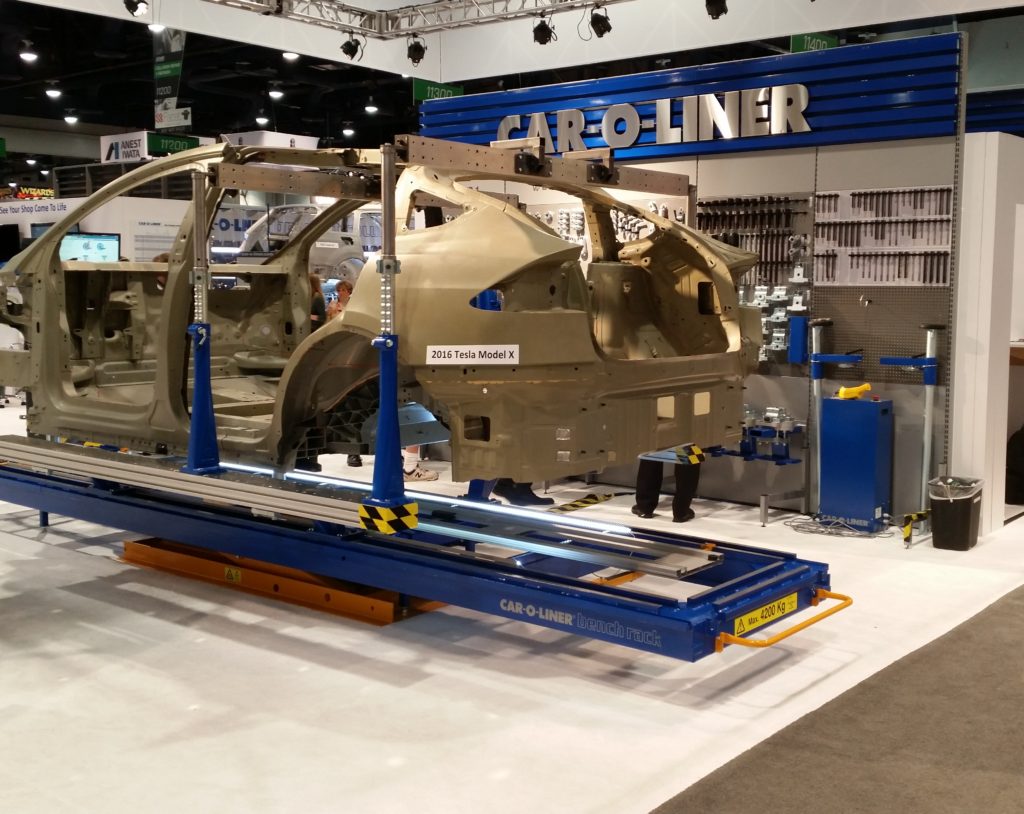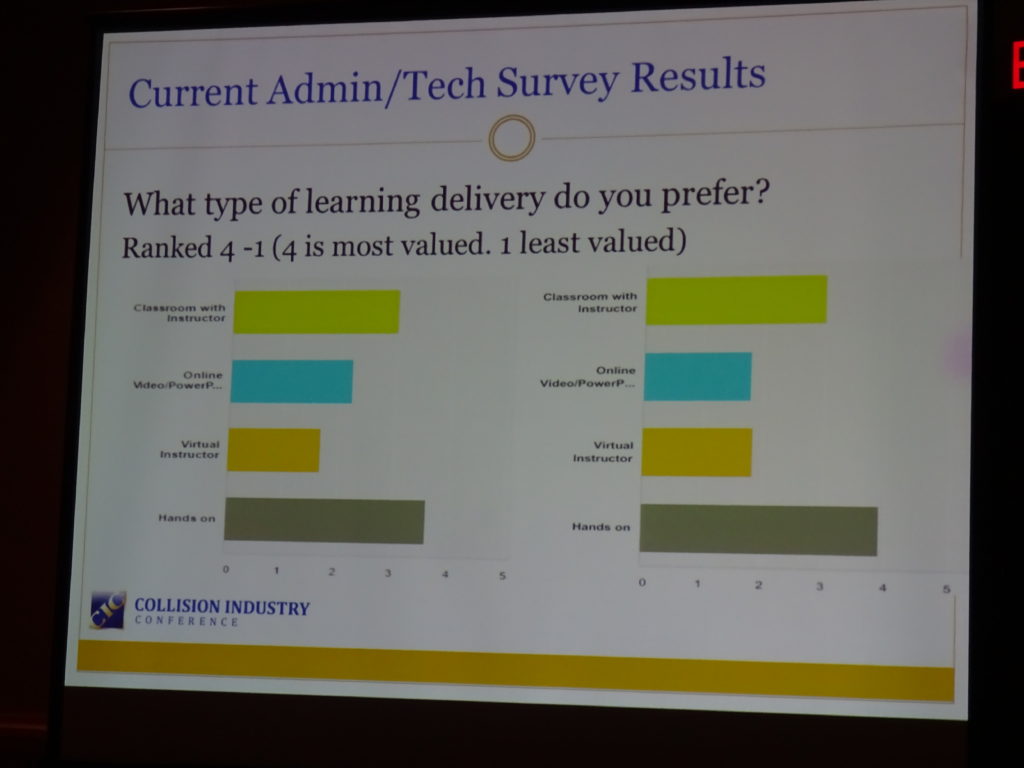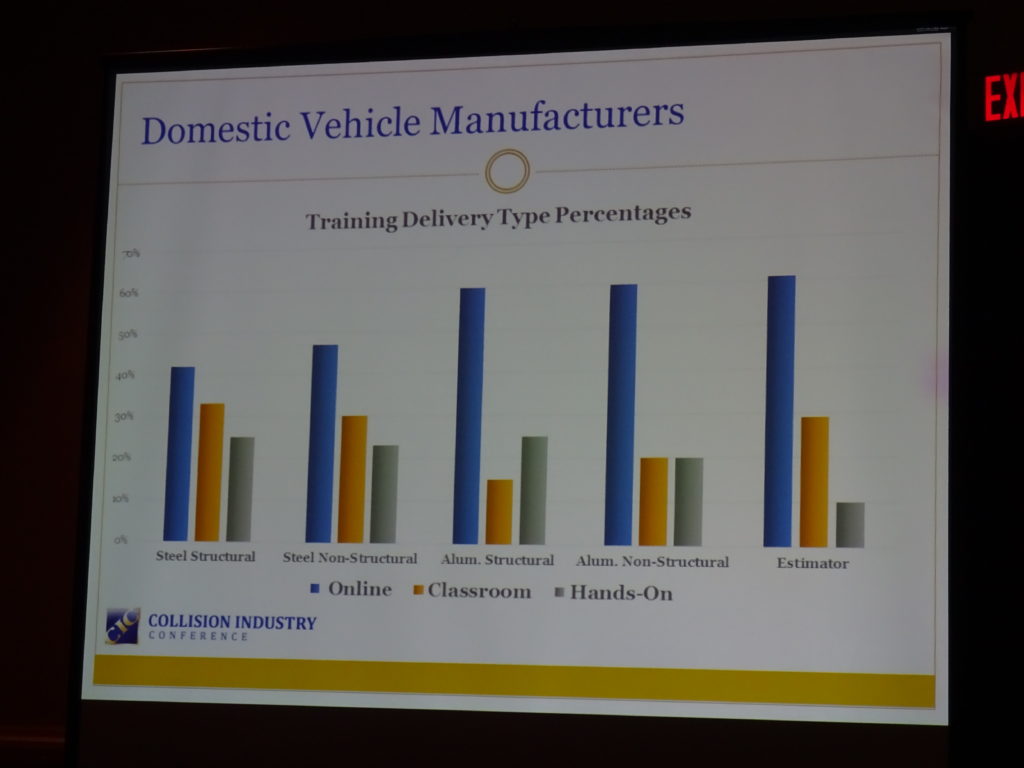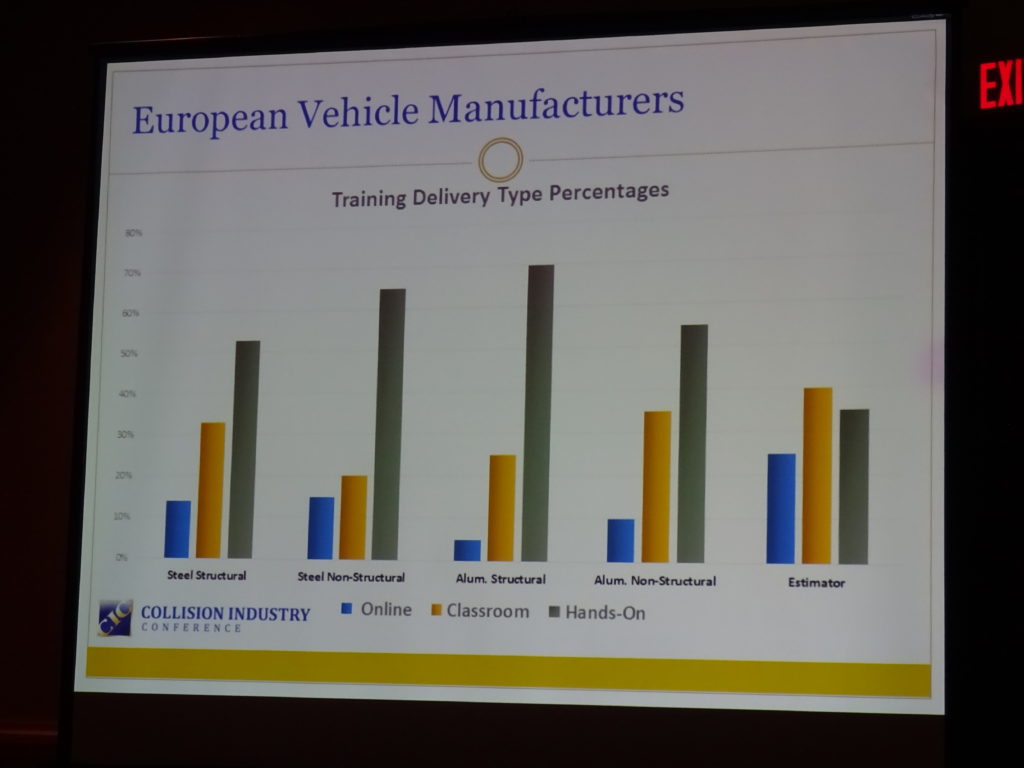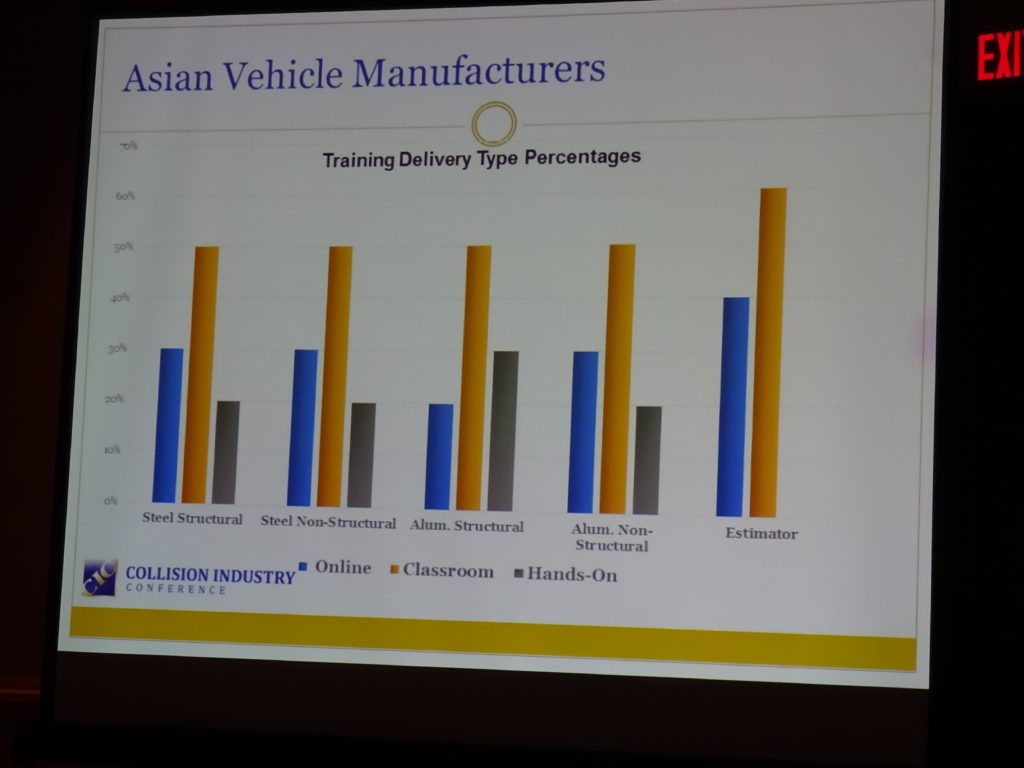
Tesla moves certified auto body courses online, outsources welding component to I-CAR
By onAnnouncements | Business Practices | Education | Repair Operations | Technology
Seeking to expand its body shop network ahead of the potentially blockbuster Model 3, Tesla informed its certified collision repairers last week that it would replace its in-house training and welding requirements for curriculum held online and administered by I-CAR, respectively.
“Building on the past 5 years of experience, we have been able to evaluate and dramatically simplify training, and will no longer require instructor led, onsite training,” Tesla wrote in an email to its certified shops obtained by Repairer Driven News. “We have developed online training as a more time and cost effective way to train your technicians to be approved for Tesla repairs. Online training offers many benefits not possible solely with instructor led training, such as unlimited reviewing of procedures, more frequent class offerings and updates for the network, and less time to train our whole technician population vs cycling everyone through constrained class rooms. Cost to you is greatly reduced, as weeks of lost production and travel expenses are eliminated as well. …
“Structural technicians will no longer have to travel to Tesla for onsite weld training and recertification. We have created an arrangement with ICAR to achieve the necessary qualification, without the expense of lost production and travel previously required.”
Tesla also observed that it made life easier for shops by approving “8 of the most popular aluminum welders” for work on its vehicles.
“We are exploring promising alternatives to other equipment for which we previously offered limited options,” Tesla wrote. “Other coming improvements will expand estimating system offerings, and reduce the time and cost of structural part replacement.”
The estimating system reference is interesting, as it’s unclear if Tesla means it will offer even more integration with AudaExplore or team up with CCC or Mitchell as well.
Tesla also said it would produce training materials in a language other than English.
Despite the benefits touted by Tesla, the certification switch raises questions of rigor and parity.
Is it fair to shops which did make the investment to attend California classes in-person that anyone with Internet access will be considered a “Tesla-certified” peer?
Perhaps anticipating negative reactions from early-adopter Tesla certified collision repairers, Tesla promised it would treat them a little differently than the latecomers.
“We are thrilled for the opportunity to drive more work to our network shops while minimizing the increased costs. Like you, we recognize how unique and exceptional the Tesla instructor led training was within the industry, and we are also acutely aware of the massive commitment you as shop owners and your technicians have made to be part of the Program,” Tesla wrote. “As we continue to simplify the Tesla Approved Body Shop program, we are working on new pricing structures for parts and repair advisory that will take into account the level of engagement and investment made by our founding partners that will forever be ‘Factory Trained’.”
Will online courses prepare technicians to repair mixed-materials, high-voltage, near-autonomous vehicles to the same degree as in-person OEM training? Ironically, the announcement came just a day before research reported by the Collision Industry Conference Education Committee suggested that online coursework might be less preferable to both classroom and hands-on training.
Preliminary research of administrators and technicians found stronger preferences for classroom and hands-on training, particularly for the small subset of technicians surveyed. (And FYI for technicians: CIC wants to hear from you, not your administrators; take the survey in English here and in Spanish here.)
A more extensive survey of OEMs from North America, Europe and Asia found the European OEMs — which arguably produce the closest vehicles to Teslas — preferring that auto body technicians have hands-on training, followed by classroom. Asian OEMs preferred they be taught in classrooms, then online — except on structural aluminum, which ranked hands-on ahead of online. Only North American OEMs thought online classes for technicians were ideal.
A Thursday request to Tesla for more information on the changes was not returned.
Shops can take Tesla’s online courses now, and the company will refund all of its paid training charges from April 1 forward. The refunds apply even if a shop has finished the class.
Here is Tesla’s new online course catalogue (minor formatting edits):
2. Courses
a. Required
i. Electrical Safety
ii. Model S and Model X Mechanical, Electrical, and Trim
iii. Model S and Model X Aluminum Structural Repair
iv. Aluminum Structural Welding
b. Optional
i. Tesla Tooling
More information:
Tesla email to certified shops
Tesla, April 18, 2017
Images:
Tesla released this image in 2016 to accompany its reveal of the Model 3. (Provided by Tesla)
A Tesla Model X body-in-white sites at the Car-O-Liner booth at SEMA 2016. (John Huetter/Repairer Driven News)
Preliminary research of administrators and technicians by the Collision Industry Conference Education Committee found stronger preferences for classroom and hands-on training, particularly for the small subset of technicians surveyed (seen at right). (Provided by Collision Industry Conference; John Huetter/Repairer Driven News)
U.S. vehicle manufacturers surveyed by the Collision Industry Conference Education Committee preferred online vehicle training for auto body technicians. (Provided by Collision Industry Conference; John Huetter/Repairer Driven News)
European vehicle manufacturers surveyed by the Collision Industry Conference Education Committee preferred hands-on vehicle training for auto body technicians. (Provided by Collision Industry Conference; John Huetter/Repairer Driven News)
Asian vehicle manufacturers surveyed by the Collision Industry Conference Education Committee preferred classroom vehicle training for auto body technicians. (Provided by Collision Industry Conference; John Huetter/Repairer Driven News)

